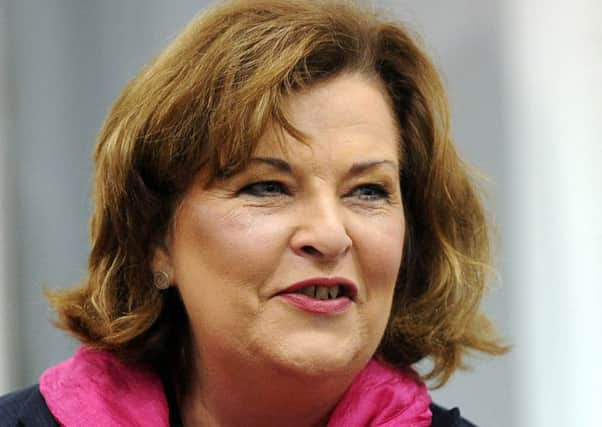Cultural sector told pay for artists needs to be overhauled


The Scottish Government has admitted too many are having to “work for very little or free”, with others unable to sustain a freelance career without taking on another job.
A summit of leading arts organisations in Glasgow heard there was a pressing need to tackle “the issue of inequality in culture”.
Advertisement
Hide AdAdvertisement
Hide AdScottish culture secretary Fiona Hyslop told the event audience at Glasgow Women’s Library: “As a government we are committed to tackling inequalities and making Scotland a stronger, fairer, more inclusive society. How a nation values its artists and creative people is an insight into the values of that society.”
The government has intervened in the wake of a damning report which found that only one in five artists in Scotland earns more than £10,000 a year.
Two thirds of working artists wee said to earn less than £5000 per annum, arts agency Creative Scotland found. The strategy is being drawn up by its director of arts, Leonie Bell.
The Creative Scotland report, published last August, warned of the prospect of the cultural scene losing its edge and relevance unless pay, living and working conditions are improved across the board because people from wealthier backgrounds are more likely to enter the sector.
Ms Hyslop said: “Artists and freelancers too often experience challenging working patterns and uneven rates of pay.
“There are still too many instances of freelancers being expected to work for very little or for free. For some, a freelance career is simply unsustainable unless they have some other means of support.
“The status of the cultural workforce and ways to improve their economic and social position is something that we are interested in exploring as the strategy develops.
Advertisement
Hide AdAdvertisement
Hide Ad“Without the ideas and contributions of artists and creative people we are all poorer. It is artists who often think in ways that are beyond our current understanding of the world.
“Artists, and creative people more broadly, contribute to society in ways that is sometimes only truly understood when we look back with the distance of time. Supporting risk, supporting people to work as artists, to explore and inquire, benefits all of us now, and into the future.”
Ms Hyslop also admitted there were still too many “barriers” to accessing arts and culture around the country, citing people living in poverty, with physical or mental health conditions, and without university degrees as examples.
She said the arts sector itself needed to become more “inclusive and equitable” itself if Scottish culture was to “accurately represent” Scottish society.
Ms Hyslop said the new cultural strategy was an opportunity to “position culture as a human right, where the right to creative expression, the right to participate and the right to earn a living from artistic and cultural pursuits is widely recognised across society.”
She said: “We should also use it (the strategy) as an opportunity to ask questions of ourselves.
“How equitable are we as a sector? Is the sector diverse enough to support access for all? How do we nurture excellence to flourish and thrive; and what does excellence mean in today’s world, in an international and domestic sense?
Advertisement
Hide AdAdvertisement
Hide Ad“Why are there still so many barriers in Scotland’s communities? Is there equitable provision across the geography of Scotland; and what can we all do to support the more vulnerable in our sector and in society? Could we do more to support inclusivity in the sector so that the culture sector becomes an inclusive employer?
“We need to work through the opportunities and the challenges that increasing demand and decreasing resource create by exploring ways to support all aspects of the sector to thrive – to maximise the budgets and assets that we do have, build on existing strengths and support new approaches including reflecting on the ways that we could cooperate and collaborate with each other and other sectors.”